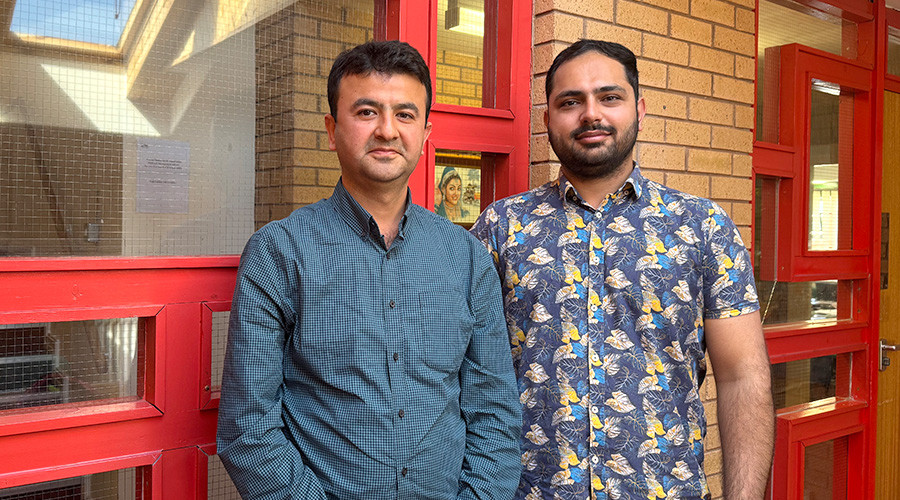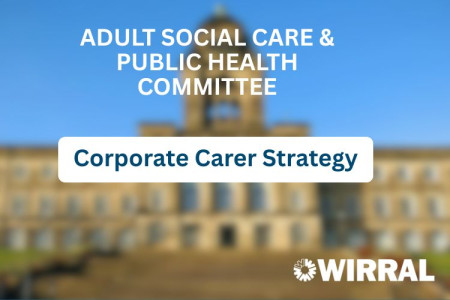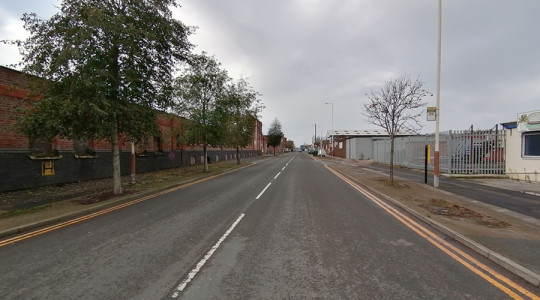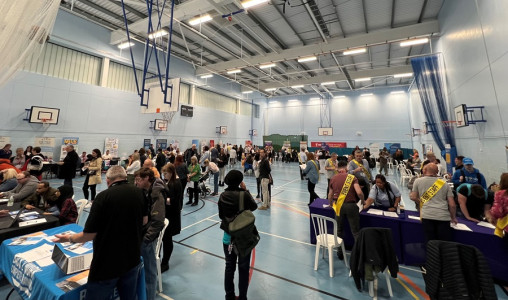Health project supports migrant communities
Wirral Multicultural Organisation (WMO), based in Birkenhead, have supported more than 1070 people to access medical and other services, through an on-the-ground health and wellbeing initiative.
Since launching in April 2024, the Migrant Community Wellbeing Project, funded by Wirral Council Public Health*, has helped hundreds of migrants and asylum seekers to access health and support services.
We spoke to Sayed, who is a support worker for the project at WMO, about the project and how it helps people.
Sayed said:
This project is designed for people who need help. Regardless of where they come from, the team is here to support them.
We help them get set up – apply for bank accounts, driving licences, [access to a] GP. We help people with their applications.
We can help people directly, or we can book interpreters for people. If somebody comes to me and I speak their language I can help them directly too. In our team we have staff members from different parts of the world, speaking different languages.
Sayed works with people of many nationalities, day in day out. He sees families of all shapes and sizes, moving to the UK for many reasons. He told us about a particular family, who were supported by the project, whose story stuck with him.
Sayed said:
I remember supporting a family with a young son who was desperately looking for learning opportunities. He had a very good educational background back in his home country - he had attended college at some stage before they left.
The family came with a working visa and were expecting to pay for college expenses. But the young lad was stuck at this stage and he was becoming quite stressed and depressed, locking himself away because he was frustrated.
I come from a background where going to school is banned for the majority of people including the women of Afghanistan. I know how valuable it is to have access to education especially in this country. Nobody should be left behind. I promised the family I would do whatever I could for them.
I found an opportunity for him and finally he was enrolled, he’s now continuing his studies in computer science. He and his family were very grateful. I told him it is what he deserves and I was very pleased for him.
When I see a case like this it’s very convincing, and it relieves me that we are here to do small things that can sometimes be very effective and mean a lot.
Another success story from the project came when Sayed was, as he puts it, ‘the right person, in the right place at the right time’.
He tells us of a man who was in urgent need of dental care, struggling to articulate his issue at a local A&E department. Luckily Sayed could speak the same language as him.
Sayed said:
I was able to help him access an emergency dental appointment, and drove him myself. In an urgent case like this, where somebody is in severe pain, it’s vital to break down these barriers.
There are a lot of examples, where we are there at the right time. Right person, right place, right time. You can do something to support someone out of a difficult situation.
The service also works to break down digital barriers and increase computer literacy among the people they support. Recently, they say migrant communities have been targeted by online scammers, often extorting money from a group who are already in a challenging position.
Mahdi is a WMO service user from Iran. He received support and advice from the project regarding housing and eventually became a WMO volunteer. He now utilises his skills in IT and interpretation to help others.
Mahdi said:
When I first came to WMO, I was going through one of the hardest times in my life. I felt overwhelmed, stressed, and alone. But the support I received here truly changed everything for me. In our culture, genuine connection means everything. When you feel seen and understood, it becomes easier to open up and share the struggles you’re facing. That sense of connection made me feel safe, valued, and supported.
I now use my IT and language skills to give back and support others. Whether it's interpreting, helping someone apply for a driving licence, resolving housing issues, or translating and explaining official documents, I’m proud to help people navigate systems that can often feel confusing and overwhelming.
It’s not just about the language barrier, many people also struggle because so many services are now online, and not everyone has the digital skills or confidence to complete forms or use official websites.
The project doesn’t just provide practical help, we build trust, connection, and a sense of community. And I truly believe that’s what makes a lasting difference in people’s lives.
Sayed and Mahdi agree that helping refugee and migrant communities to integrate is a positive step.
Sayed said:
Nobody is 100% independent, we all need help and support, that’s why we live in a community with others. But in terms of language, I think education and learning is important.
It helps with their social integration as well. Coming to a new country can be a real culture shock. But when they see other community members here [at WMO] with more experience, it helps to build that confidence and support them.
To learn more about Wirral Multicultural Organisation, visit: Home.
*The project was funded by Wirral Council’s Public Health Grant. It was awarded £384K across three years covering staffing, translation and other costs. The public health grant is ringfenced for use to fund public health functions, which seek better health outcomes for Wirral’s population, including supporting asylum seekers.




